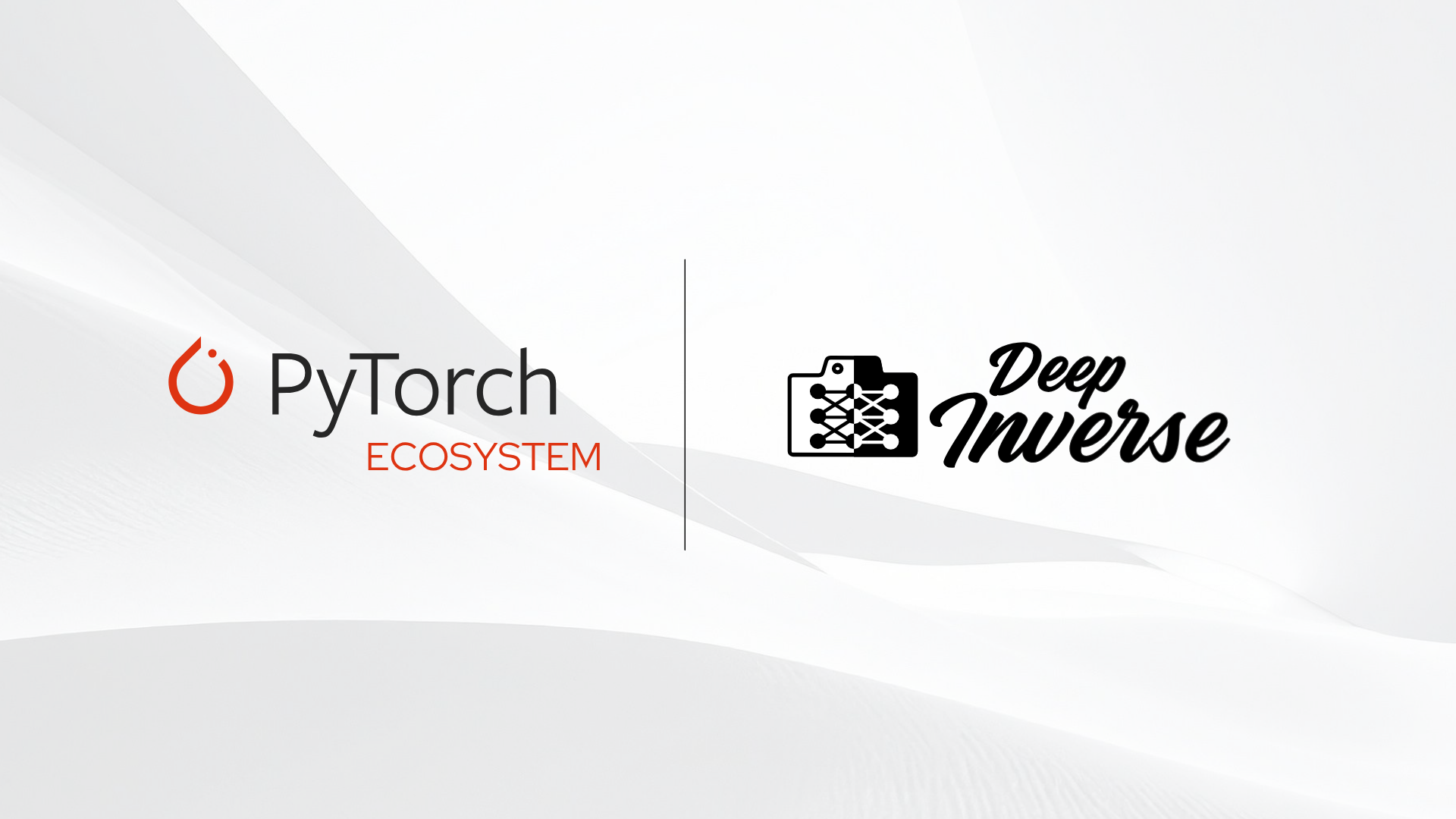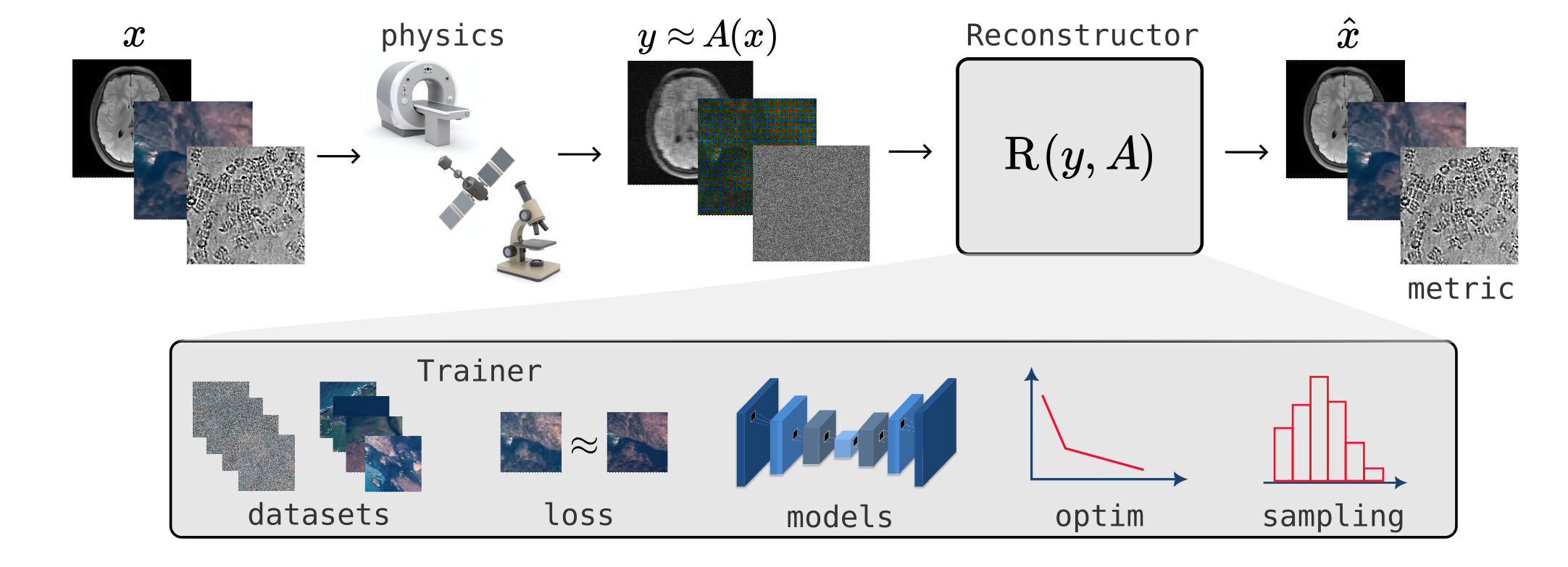
Intro
DeepInverse (repo) is an open source library for imaging with deep learning across a wide set of domains: medical imaging, computational photography, remote sensing, astronomical imaging, microscopy, compressed sensing, and more! DeepInverse implements all steps for image reconstruction, including efficient forward operators, defining and solving variational problems, and designing and training state-of-the-art neural networks.
To view the PyTorch Ecosystem, see the PyTorch Landscape and learn more about how projects can join the PyTorch Ecosystem.
About
Over the past century, advances in imaging technologies, from digital cameras to magnetic resonance imaging (MRI), have driven major progress in science, engineering, and healthcare. Today, deep learning has become ubiquitous in image reconstruction, offering higher-quality results and faster acquisitions from limited or noisy measurements. However, most learning-based algorithms are built from scratch, hard to reproduce, and hard to generalize beyond their specific training setting.
DeepInverse makes imaging with deep learning easy for researchers (in optimization, image processing, etc.), practitioners (biologists, physicists, etc.), and software engineers. Get started with DeepInverse in 5 minutes: https://deepinv.github.io/deepinv/quickstart.html

Key features
- A large framework of predefined imaging operators for simulating image acquisition
- State-of-the-art deep neural networks, including pretrained out-of-the-box reconstruction models and denoisers
- Comprehensive frameworks for plug-and-play restoration, optimization, and unfolded architectures
- Training losses for inverse problems
- Sampling algorithms and diffusion models for uncertainty quantification
- A framework for building datasets for inverse problems
Get involved
The DeepInverse community is building software for the cutting edge of deep learning for computational imaging. Help us reach more people! Star us on GitHub if you’re interested in:
- Open-source AI for science
- Reproducible implementations of computer vision and imaging research
- Well-documented modern scientific PyTorch code (we recently won a prize for our docs)
DeepInverse welcomes contributions of all forms. You can contribute even if you don’t have a background in imaging – contributions range from mathematical routines through state-of-the-art ML methodologies to scientific applications and datasets. Here are our good first issues, and join our community!
Does your company work with imaging technologies and want to explore deep learning? We’d love to connect — reach out to us at Blur Labs!
Conclusion
DeepInverse is an active community of researchers, practitioners, and engineers passionate about imaging, AI, open-source science, and PyTorch. Learn more:
- Star us on GitHub
- Read our award-winning docs
- Read our paper accepted at JOSS
- Reach out to a maintainer